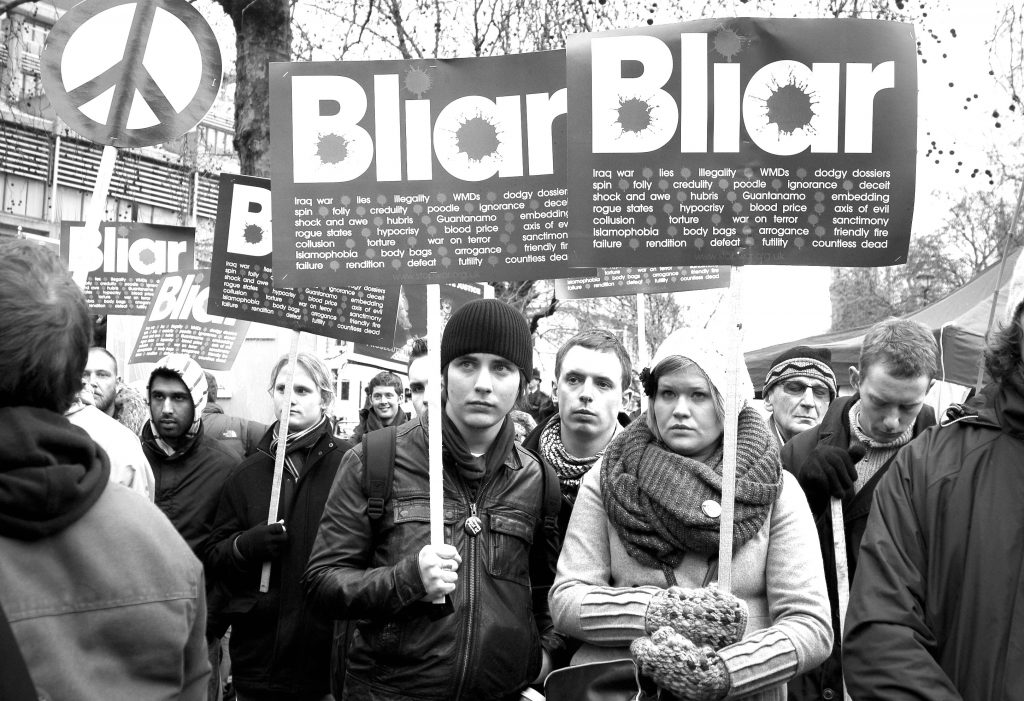Working paper given by Dr Owen Thomas at the ‘Intelligence, surveillance, and oversight: tracing connections and contestations’ conference, held by GUARDINT project (‘Intelligence and Oversight Networks: Who Guards the Guardians’) on 26th and 27th January 2022.
The limits of scrutiny: official inquiries and the past, present, and future of security
This intervention was based on the paper ‘The limits of scrutiny: Official inquiries and the past, present, and future of war’ by Owen D Thomas, Margot Tudor, and Catriona Pennell at the University of Exeter. The aim of that paper is to begin to sketch a research agenda for how inquiries into matters of security, war and conflict can be conceptualised and researched, and what role inquiries play in democratic scrutiny and accountability.
For Thomas and his co-authors, inquiries have become an instrument of last resort and have historically been represented as both panacea and placebo (i.e. a chance to remedy failings or an establishment whitewash). Inquiries don’t simply pass on the facts but frame them through a point of view. The focus on security and war is important given these are exercises of the most basic sovereign power, in addition to the ‘civilised’ expectations and justification associated with them. The intervention focused on how inquiries are constructed, and decisions scrutinised, arguing that inquiries function as an apparatus of “authoritative sense- making” through 3 practices of line drawing: i) scandalisation, ii) archivisation, and iii) cultures of knowing.
Beginning with the investigation of scandals in inquiries, Thomas elaborated on how scandals are understood as an alleged transgression of valued social norms, values, or moral codes that become publicised. Thomas explained that by defining the scandal—discrete event, the actors, the types of decisions under scrutiny—an inquiry implicitly affirms everything outside of those terms as proper and legitimate. Not only did Thomas show that the process of scandalisation narrows the political scope of an inquiry, but also that inquiries scrutinise such decisions by separating the transgressive from the otherwise proper political order (arguably even protecting the political order). To illustrate this, he drew on the absence of any ad hoc inquiry into abuses of surveillance powers revealed by Snowden, and the limited scope of the Chilcot Inquiry.
Another form of line-drawing that Thomas elaborated on was archivisation—that is, the construction of an archive of evidence for an inquiry. No matter how transparent an inquiry, he argued that archives necessarily impose a hierarchy in terms of who and what is heard. This impacts the historical record and may reflect societal prejudices of race, gender, and class – further entrenching a hierarchy of experiences of who is listened to and valued. Thomas argued that it was evident from their archives that British public inquiries have a record-keeping culture that privileges high politics, establishment voices, and classified evidence above other knowledge. Again, he drew on the Snowden revelations and the defence of surveillance powers presented through the ISC hearings with the platforming of intelligence chiefs, and the publication and preservation of engagements with politicians and officials (and the dismissal of insights from other political standpoints) in the transcripts of the Joint Intelligence Committee reports with regards to the Iraq war.

The final line-drawing practice of an inquiry that was discussed, was its culture of knowing, that is: those implicit and explicit ontological, epistemological, and methodological assumptions that an inquiry uses to produce and justify its claims and those that, crucially, are regarded as reasonable by the inquiry’s audience. Put simply, Thomas explained that if scandalisation establishes the limits of what must be explained, and archivisation determines who speaks, the culture of knowing shapes how the scandal is explained and the voices of the archives are interpreted. Through a methodological preference for ‘individualisation’, Thomas illustrated that public inquiries preclude investigation into wider ethical structures or societal values and centralise issues of technique: actors’ ability to follow norms, less the norms themselves. Again drawing on the Chilcot Inquiry and the case of ‘Report X’, Thomas highlighted the focus on Blair, and the individual interpretations/transgressions rather than the less legible, political and cultural presuppositions underpinning decisions and ‘analysis’.
Thomas ended his presentation arguing that the three lines combine to produce ostensibly democratic scrutiny of war that is often grounded in technique and one that always already frames subsequent political and ethical questions amongst the public spheres that watch an inquiry. In turn, this generates a kind of “public secret” in which we habitually “act as if mischief were not afoot in the kingdom of the real and that all-around”, outside the frame of inquiry, “the ground lay firm”. Thomas argued that while inquiries can be tools to gather information and generate accountability, there is much to be gained from subjecting what could be viewed as a technocratic, depoliticised, and decontextualised ‘process’ to critical reflection.